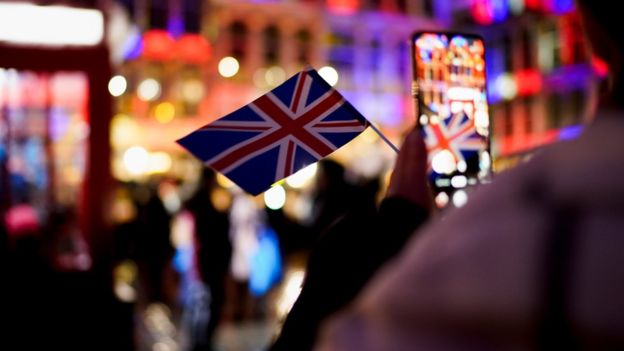
This article is more than
6 year old
The prime minister will use a speech on Monday to toughen his stance ahead of trade talks following the UK's formal withdrawal from the bloc.
Minister Dominic Raab said agreeing to align strongly with EU rules would "defeat the point of Brexit".
But Irish PM Leo Varadkar said the UK needed to commit to a level playing field to get a free trade deal.
And Labour's John McDonnell said by seeking to move away from EU rules, the PM was contradicting promises he made to protect standards on the environment, workers' rights and consumer protections.
EU chief negotiator Michel Barnier will also set out his approach to the talks, which are due to start next month.
In what is being described as a comprehensive speech, Mr Johnson will tell the European Union he is prepared to accept customs checks at Britain's borders if he cannot secure the sort of trade deal he wants.
One option the PM could support would be a Canada-style free trade deal which allows tariff-free trade for the majority of goods, but would not cover the UK's service industry - which accounts for more than 80% of UK jobs.
Reports in recent days have suggested EU chiefs want the UK to continue to follow Brussels-made rules on standards and state subsidies - while accepting the jurisdiction of the European Court of Justice in any trade disputes.
Speaking to the BBC's Andrew Marr Show, Mr Varadkar said it was possible for the UK to have a "Canada-style agreement".
However he said that if the UK wanted a tariff-free trade deal "then that needs to come with a level playing field" adding "we have very strong views on fair competition and state aid."
A level playing field is a trade policy phrase for a set of common rules and standards that prevent businesses in one country undercutting their rivals and gaining a competitive advantage over those operating in other countries.
Mr McDonnell said Mr Johnson's desire to diverge from EU rules "contradict" what the PM had previously said on protecting environmental, consumer and employment rights.
"On the one hand he said there will be [protections] on the other hand he is sabre-rattling saying that won't happen in the negotiations," he said.
But Brexit Party leader Nigel Farage welcomed the prime minister's approach arguing it was in the UK's "national interest" to be "a competitor on their [the EU's] doorstep."

The government is understood to be angry about perceived attempts by Brussels to go back on an agreement struck in October as part of the Withdrawal Agreement, the Sunday Telegraph first reported.
The PM is expected to tell the EU in the speech that he will accept no alignment, no jurisdiction of the European courts, and no concessions to any Brussels' demands when talks start in March.
He is also preparing to rule out relaxing rules on workers' rights, food hygiene standards and environmental protections.
The government also wants to make progress in striking free trade agreements with countries such as the United States, Japan, Australia and New Zealand.
The EU's own approach to the negotiations needs to be agreed by all 27 member states - which would be unlikely to happen before the end of February.
While the UK officially left the EU at 23:00 GMT on Friday, it will remain wedded to EU rules during a transition period which ends in December this year.
The UK can request an extension to this transition period, but Mr Johnson has previously said he will not do so.